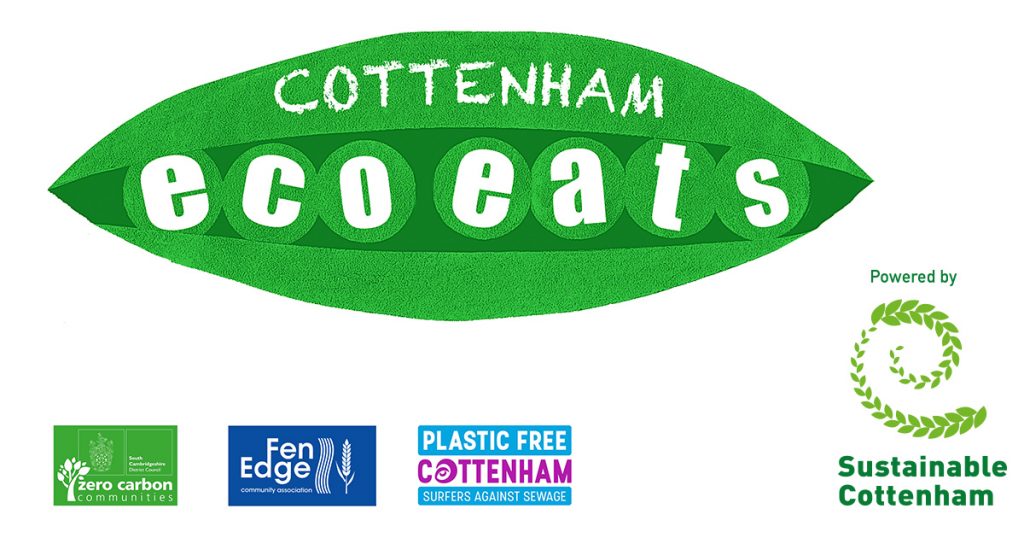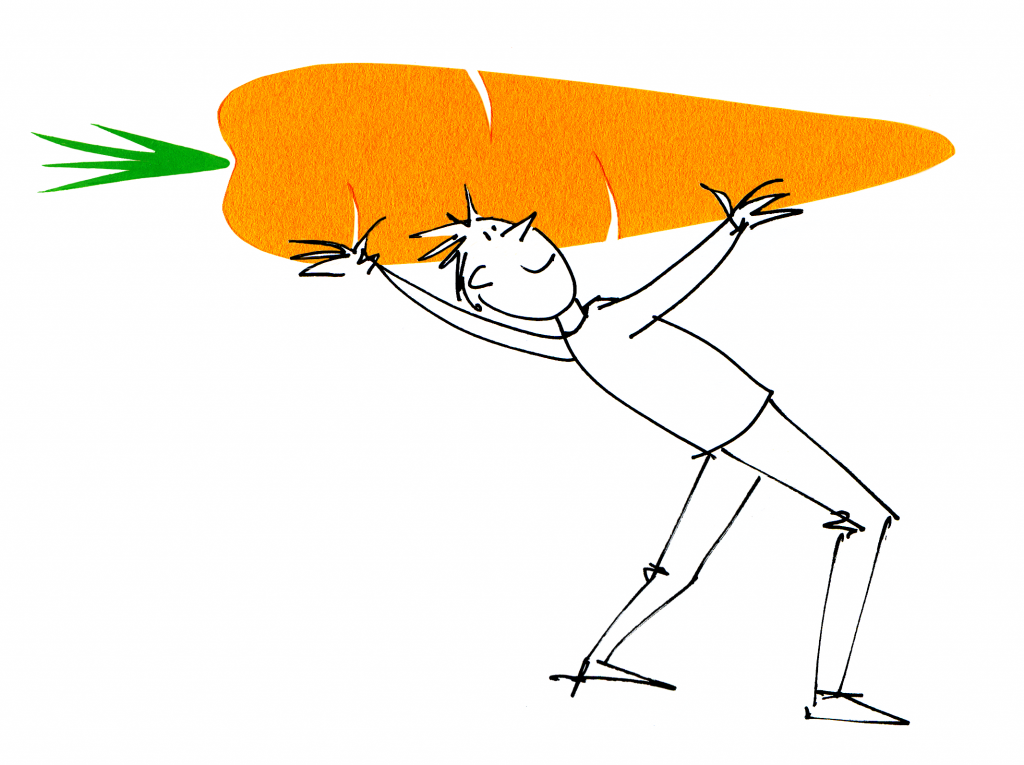
Why Eco Eats?
Globally our current food system is hurting our planet, being a major cause of both greenhouse gas emissions and biodiversity loss. The impacts of food production, shipping, processing, packaging and wastage combine to create about one quarter of the planet-warming greenhouse gases that humans generate each year. If you eat food, you’re part of this system.
But with modest diet changes and informed choices, all of us can help to shop, cook and eat our way towards a more sustainable future.
2023: Taking Stock: Food and Climate Change
New Year is a time when thoughts often turn to healthier living – and changes for healthier selves can go hand in hand with changes for a healthier planet. Diet is a good place to start. There is scope for easy switches in the food choices we make, choices which can be good for our health, our pockets and our planet all at the same time. The Eco Eats Recipe Book* produced by Sustainable Cottenham is full of ideas for inexpensive planet friendly dishes.
While understanding the true CO2 impacts of different foods is a complex matter, there are some headline changes that will definitely help to reduce the carbon footprint of our diets. These include:
- cutting down on meat and dairy
- enjoying lots of seasonal, locally grown produce
- saying ‘no’ to perishable veg, fruits and fish air-freighted in from abroad
- cherishing our food and minimising waste
It doesn’t have to be about adopting an ‘ism’ – vegetarianism or veganism; a resolution to try out some more meat-free dishes will make a difference. If you do go a step further to become vegetarian or vegan – or if you already are – that represents a really big saving of food-related CO2 emissions [a saving of half or more than half when compared with an ‘average’ diet**].
Trying out some new planet-friendly dishes now is a great way to take advantage of the abundance of UK-grown seasonal veg in winter – think leeks, celeriac, parsnips, kale, Jerusalem artichokes, etc. If planning a meat dish, bear in mind that beef and lamb have a far higher carbon footprint than other meats, while chicken has the lowest**. With the rise in milk prices, it’s now a really easy swap to reduce dairy foods by opting for plant-based milk instead – delicious on cereals and keeps for ages so no waste!
Happy new year and happy climate-friendly eating!
*The Eco Eats Recipe Book is available to purchase [£2.50] from Les Wards Greengrocers and the Cottenham Community Coffee Shop or contact chris@sustainablecottenham.org.uk.
** Much of the info for Eco Eats has been drawn from Prof Sarah Bridle’s authoritative book ‘Food and Climate Change without the Hot Air’. Check out Sarah’s website Take a Bite out of Climate Change www.takeabitecc.org for lots of practical advice, info and resources.
2022: What happened last year?
Disco Soup!
Disco what? It might sound bizarre, but ‘Disco Soup’ is a simple idea, a happy mix of bopping and chopping, ending up with a mug of hot soup made from surplus vegetables that would otherwise have gone to waste – a win win! Here is a report on the fun event at Cottenham Primary School in November.
Fen Edge Festival
At FEF in June 2022, Sustainable Cottenham’s stand had lots of ideas and inspiration for Eco Eating – live cookery demonstrations by Steve The Foraging Chef, plus special guest Chef Anthony Pitcher ‘celebrating all things seasonal’; our Climate Food Flashcard challenge; and Cambridge Sustainable Food’s stall with tempting tasters and expert advice.
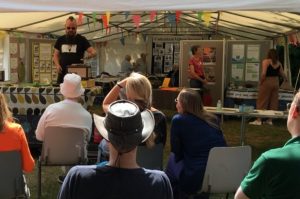
Eco Eats Recipe Book
The Festival was the launchpad for our new Eco Eats Recipe Book – an essential guide to simple and delicious ways to reduce the carbon footprint of your diet.
The booklet brings together tried and tested recipes for family meals to inspire and help you increase the proportion of vegetarian and vegan meals in your weekly menu collection. You can do this because they are tasty, easy and economical or because you want to reduce your greenhouse-gas emissions – or both!
All recipes are vegetarian and some are vegan or easily made vegan. They were recommended by Cottenham residents, chefs and their families and generally use ingredients that can be easily purchased in Cottenham, in our excellent local shops including Wards greengrocer and the Co-op. Many recipes are good for using up seasonal gluts (courgettes, tomatoes) or food that needs using up (ripe bananas). If you would like a copy (cost £2.50) please email chris@sustainablecottenham.org.uk
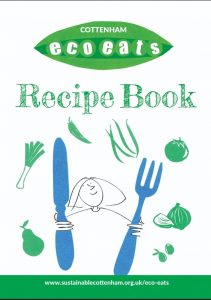
Family cookery workshops
In collaboration with Cottenham Primary School we’ve offered a special family cookery workshop, run by our Eco Eats partner Cambridge Sustainable Food. These workshops share easy ways to prepare tasty meals ticking all the boxes – healthy, economical and climate friendly.
VEGFEST!
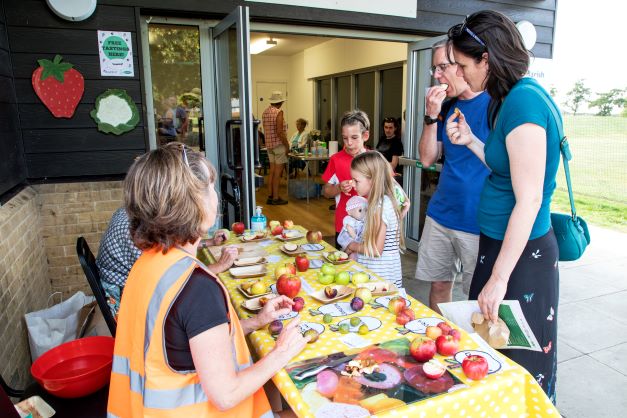
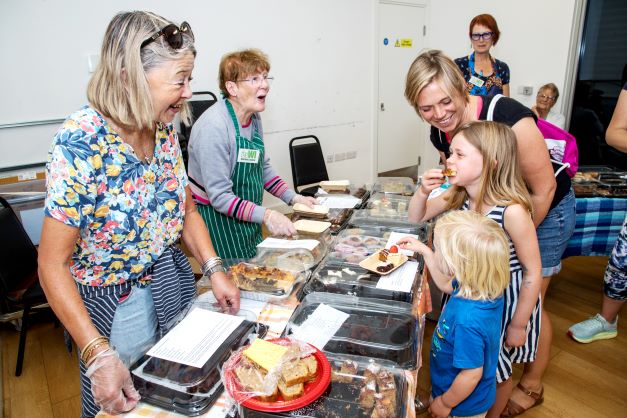
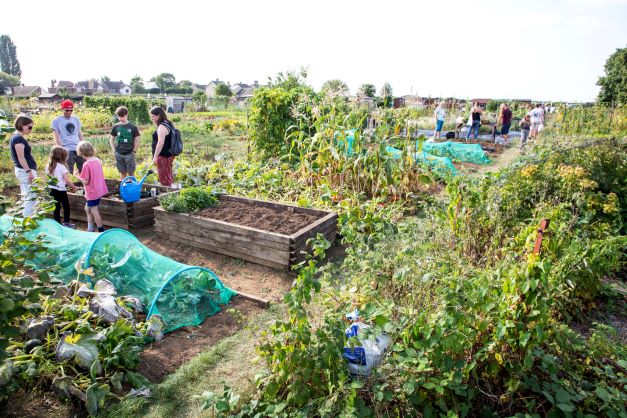
Our first live Eco Eats event took place at Cottenham Allotments & Pavilion on the Recreation Ground, on Sunday 5 September 2021. The weather was summery and over 180 adults and children took part in a wide range of things veg & fruity:
- Cambridge Sustainable Food’s information stand about their Climate Diet Campaign to remind us why it is so important to choose planet-friendly diet options – and how easy it can be.
- refreshments with WI home-baked veg-themed cakes – free tastings! See our veg cake recipes
- selection of 5 plant-based milks to try – courtesy of The Co-op
- veg discovery trail; games
- kids ‘have a grow’ at Cottenham Community Allotment
- composting know-how
- apple juicing & tasting by Sustainable Cottenham’s first Plastic Free Business Champion Fen End Farm and additional apples and plums from the Bushel Box Farm Shop, Willingham. Very many thanks for their produce and efforts.
Supported by Cottenham Community Allotment & Cottenham WI
Photographs by Jeremy Pembrey – many thanks.
www.facebook.com/Cottenham-Community-Allotment
FOOD FOR OUR FUTURE
Cottenham Eco Eats has teamed up with Cambridge Sustainable Food’s year-long Food for Our Future campaign to reduce all aspects of our carbon food-prints. CSF’s Climate Diet Campaign [July/August 2021] raises awareness of the impact our food choices have on climate change.
‘Consuming less red meat and dairy will typically make the biggest difference. You might eat less of the foods with the biggest climate footprints, like beef, lamb and cheese. If you’re looking for substitutes, pork, chicken, eggs and molluscs have a smaller footprint; and plant-based foods like beans, pulses and grains tend to be the most climate-friendly options of all.’
‘Dietary changes can be a quick, achievable way for many people to lighten their impact on the planet. And studies show that eating less red meat is much better for your health too!’
We’re lucky to have great resources in Cottenham to help us shop and eat in a more climate-friendly way. Our wonderful village shops offer options for fresh and healthy food and a selection of seasonal, unwrapped, locally grown, locally reared or locally baked produce.
For more info and inspiration check out these links:
- On greenhouse gas emissions from food production and the relative impacts of different foodstuffs: https://cambridgesustainablefood.org/climate-diet-pledge
- Not sure about how to shift to eating less meat and dairy foods, or none, while still maintaining a balanced diet with all the essential nutrients? The Co-op website has lots of useful info: https://www.coop.co.uk/health-wellbeing/meat-free
- For some great ideas on small actions and goals to shift to a more climate-friendly diet, go to CSF’s ’30 Things you can do to Eat for the Planet’ https://cambridgesustainablefood.org/climate-diet-pledge-form
Don’t forget that saving food waste is one of the most direct and effective actions we can readily take to reduce our carbon footprint – and save money at the same time. Combating climate change with our kitchen caddies! Check out the Eco Eats drop-down menu for waste-saving recipes and tips.
CONTACT US!
Or start a conversation on our FaceBook page – we’d love to hear your ideas about eating more sustainably, whether it’s waste-saving recipes, sources of seasonal produce, shopping for different plant-based ingredients or your favourite meat- or dairy-free recipes.
Remember at the end of the project there will be a Cottenham Eco Eats recipe book and we’ll be looking for your ideas and recipes to include.
ECO EATS IS SUPPORTED BY
- South Cambridgeshire District Council Zero Carbon Communities
- Fen Edge Community Association
